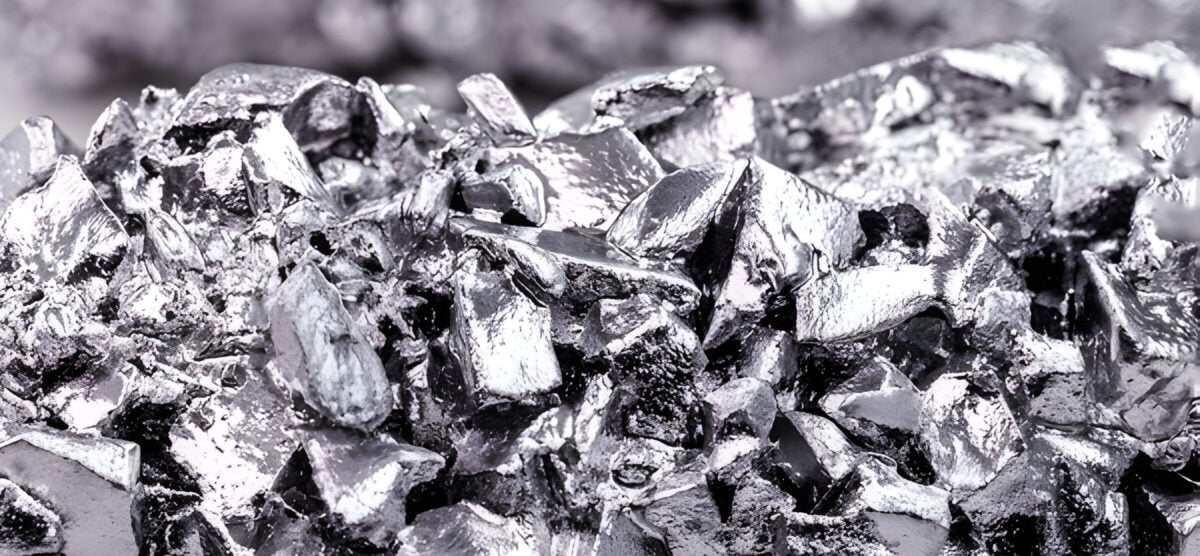Blogs

The Comprehensive Guide to the Uses of Titanium
Titanium is a versatile and essential element used across numerous industries, making it a material of choice for countless applications. From aerospace engineering to medical implants, titanium’s unique properties make it indispensable in both high-tech and everyday products.
This article explores the many uses of titanium, its standout physical and chemical properties, and its growing importance across different sectors.
Understanding Titanium
Titanium is a chemical element with the atomic number 22 and symbol Ti. It was discovered in the late 18th century and named after the powerful Titans of Greek mythology.
Where is Titanium Found?
Titanium is the ninth most abundant metal in the Earth’s crust. It’s typically extracted from minerals like ilmenite and rutile. Once refined, titanium appears as a lustrous, white metal with remarkable mechanical strength.
Key Properties of Titanium
Titanium’s broad use comes from a combination of exceptional properties:
- High Strength-to-Weight Ratio
Titanium is as strong as steel but much lighter, making it perfect for industries where weight matters, such as aerospace and automotive. - Corrosion Resistance
A natural oxide layer protects titanium from rust, even in harsh environments like seawater or chemical plants. - Biocompatibility
Non-toxic and non-allergenic, titanium integrates well with human tissues. It’s widely used in medical implants and surgical tools. - Non-Magnetic
Titanium’s non-magnetic nature makes it ideal for use near sensitive electronics or medical imaging devices.
Industrial Uses of Titanium
Let’s look at how different industries take advantage of titanium’s properties:
1. Aerospace Industry
Titanium plays a major role in modern aviation and space travel:
- Aircraft Bodies: Lightweight and durable, titanium reduces aircraft weight, improving fuel efficiency.
- Jet Engines & Missiles: Withstands extreme heat and stress in engine components.
- Fan Blades & Engine Compartments: Maintains integrity under pressure, ensuring safety and performance.
2. Automotive Industry
- Exhaust Systems: Lightweight, durable, and heat-resistant — commonly used in sports and luxury cars.
- High-Performance Components: Found in connecting rods, valves, and suspension springs — boosting speed and handling.
3. Marine Engineering
- Seawater Heat Exchangers
- Propellers & Submarine Hulls
- Valves & Pipes
Its longevity in saltwater environments reduces maintenance and extends product life.
4. Construction Industry
In architecture and construction:
- Roofing & Fences: Long-lasting and low maintenance.
- Structural Components: Suitable for bridges, skyscrapers, and other infrastructure thanks to its strength.
Titanium in Medical Devices
Titanium’s biocompatibility makes it a top choice in healthcare:
- Surgical Instruments: Durable and safe for repeated use.
- Artificial Joints: Bonds naturally with bone, making it ideal for hip and knee replacements.
- Dental Implants: Offers a secure, long-term solution for missing teeth.
Environmental Benefits of Titanium
1. Energy Efficiency
Titanium’s lightweight nature reduces the fuel needed in transportation, lowering carbon emissions.
2. Durability
Its corrosion resistance means fewer replacements, saving energy and raw materials in the long term.
3. Recyclability
Titanium is fully recyclable with minimal loss in quality, supporting a circular economy.
Innovations in Titanium Technology
Ongoing research is unlocking new potential for titanium:
1. 3D Printing
Additive manufacturing allows for complex, lightweight titanium parts in aerospace and medical fields. This leads to custom, high-performance components.
2. Advanced Coatings
New coatings boost titanium’s durability and heat resistance, enabling use in extreme environments like jet engines and power plants.
3. Biomedical Breakthroughs
Researchers are creating titanium scaffolds for tissue engineering — supporting healing and regeneration in damaged tissues.
Titanium in Consumer & Sporting Goods
- Watches & Kitchenware: Lightweight, sleek, and corrosion-resistant.
- Electronics: Used in laptops, phones, and gadgets for added durability.
- Sporting Equipment: Improves performance in golf clubs, tennis rackets, and bicycles.
The Future of Titanium
Titanium applications continue to grow:
- Next-gen Aerospace Components
- Advanced Prosthetics
- Eco-friendly Transportation
- Durable Consumer Electronics
Conclusion
From aerospace to medical devices, titanium’s strength, lightweight nature, and corrosion resistance make it a true game-changer. As technology advances, expect titanium to play an even bigger role in shaping our world.
Frequently Asked Questions
Q1. What are the primary uses of titanium?
Titanium is used in aerospace, automotive, medical devices, marine engineering, and consumer products.
Q2. Why is titanium preferred in aerospace applications?
Its high strength-to-weight ratio and corrosion resistance are ideal for aircraft structures and engine components.
Q3. How is titanium used in medical devices?
Titanium is biocompatible and used in surgical tools, joint replacements, and dental implants.
Q4. What makes titanium suitable for marine applications?
It resists corrosion in seawater, making it perfect for marine vessels, pipes, and valves.
Q5. Can titanium be used in everyday products?
Yes. It’s used in watches, electronics, kitchenware, and sporting goods.
Q6. What are the benefits of titanium in automobiles?
It boosts performance, lowers weight, and adds durability.
Q7. How does titanium’s corrosion resistance help?
Its oxide layer prevents rust, extending product life and reducing maintenance.
Q8. What are the emerging applications of titanium?
New uses include 3D-printed implants, advanced aerospace parts, and titanium-based tissue engineering.
🔗 Discover more on our website https://domadia.net/contact/




